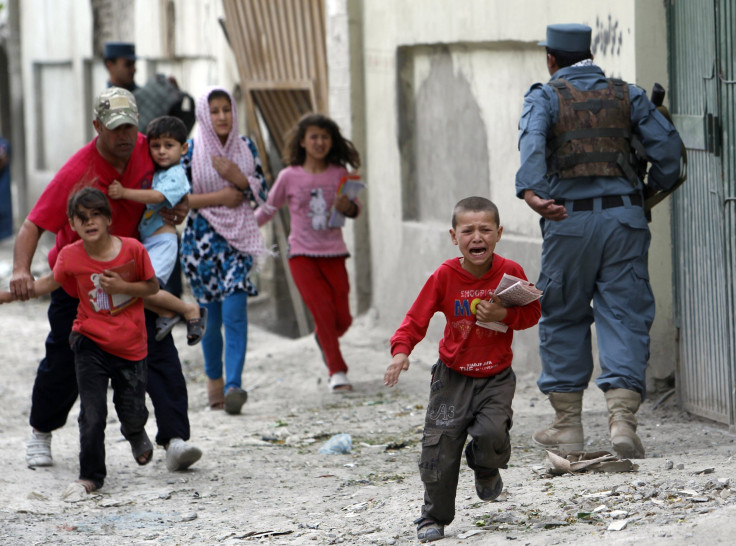US General's Killing Raises Questions About Troop Withdrawal From Afghanistan

The fatal shooting of Maj. Gen. Harold Green by a man wearing an Afghan army uniform raises questions about the timing of the upcoming U.S. troop withdrawal from Afghanistan and whether any U.S. troops should remain in the country afterward, a foreign policy expert told International Business Times on Tuesday.
The incident, which also injured 15 people from other coalition forces who were visiting a local defense university in Kabul, raised questions about the state of security in a country that the United States military plans to leave in just four months.
“The fact that this was an insider attack, a green on blue attack, probably will increase calls for the U.S. to go for the zero troop option in Afghanistan,” said Lisa A. Curtis, senior research fellow for South Asia at the Asian Studies Center, referring to a proposal to reduce U.S. troop numbers to zero. Current plans call for keeping 9,800 soldiers in the country for an indefinite period.
There has been a surge in Taliban activity across regions of Afghanistan that were once held by coalition forces, casting doubt on the ability of Afghan forces to withstand the current insurgency. Those gains threaten an already fragile political landscape in the country which is still attempting to decide the outcome of the presidential election held on June 14.
Whether the 9,800 troops remain after the main withdrawal in December depends on the signing of a bilateral security agreement, or BFA, with Afghanistan, which in turn hinges on the country's ability to sort out the June 14 election. For now, everything is up in the air, and Greene's death adds another variable while increasing the sense of urgency.
As Curtis explained, “It would likely play out like we might the Iraq scenario. If we’re unable to sign the BFA by the end of the year, I think it would be extremely difficult if not impossible for the U.S. to be able to leave troops in Afghanistan.”
The shooting, which took place at the Marshall Fahim National Defense University in Kabul, comes after two years of relative cooperation and peace between the coalition forces of International Security Assistance Force (ISAF) and the Afghan National Security Forces. In 2012, a spate of shootings by Afghan army personnel threatened to undermine the handover of security from the U.S.-led forces to the country's security forces.
The Taliban took official responsibility for the attack, but as Curtis noted, the motivations for the shooting remain unknown. Among the possibilities, she said: It was revenge for a NATO-led ISAF air raid which resulted in the death of at least eight people from the same family in the Herat province of Afghanistan earlier on Tuesday.
Despite suggestions of problems with the vetting of Afghan army cadets, Pentagon spokesperson Rear Admiral John Kirby said in a press conference on Tuesday that the military had “seen no indication that there is a degradation of trust between coalition members and their Afghan counterparts.”
He added: “The Afghan national security force has continued to perform at a very strong level of competence and confidence.”
However, according to Curtis, Tuesday’s attack will likely result in intense discussions on what to do about the worsening security issue in the country. The U.S., she said, could sign the bilateral security agreement and extend the current level of troop numbers beyond December. But given that many of the military bases are being dismantled and much of the equipment is being destroyed or sold, maintaining current levels could prove very difficult. Added to that is the slow progress of the National Defense Authorization Act 2015, which is currently in congressional gridlock with the Senate still unable to finalize its portion of the bill, meaning any funding for a continued large-scale force in Afghanistan would be in jeopardy.
The overall concern, Curtis said, is that Afghanistan could deteriorate as Iraq has, with the Taliban and al Qaeda running an insurgency. She said some analysts have suggested the U.S. should maintain a permanent force in Afghanistan, though pending sequestration -- starting in 2016 -- also makes that unlikely.
Curtis believes that should U.S. forces leave the country entirely, much of what was gained since 2001 would be lost.
“I think we would be back to square one where Taliban and al Qaeda have a major safe haven and ability to operate, and all the blood and treasure spent over the last 13 years would basically be for naught,” she said.
© Copyright IBTimes 2024. All rights reserved.






















